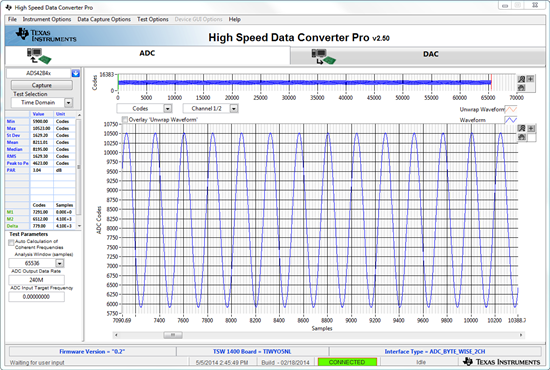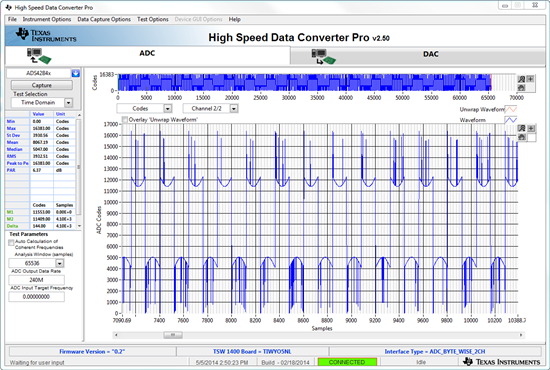Hi - we have an ADS42B49EVM that we are using with the TSW1400 to capture data. The A channel functions perfectly, but the data coming in the B channel looks almost like it is the wrong data format...with a sine input, the sine peaks extend toward 0, and the zero crossings switch from max negative to max positive. The ADS eval is set for Offset Binary (and works on Channel A). As a side note, we used this ADS EVM with a TSW1200 and I believe both channels worked properly with that system. Would like some help with getting the B channel to work.
Thanks - Eric



